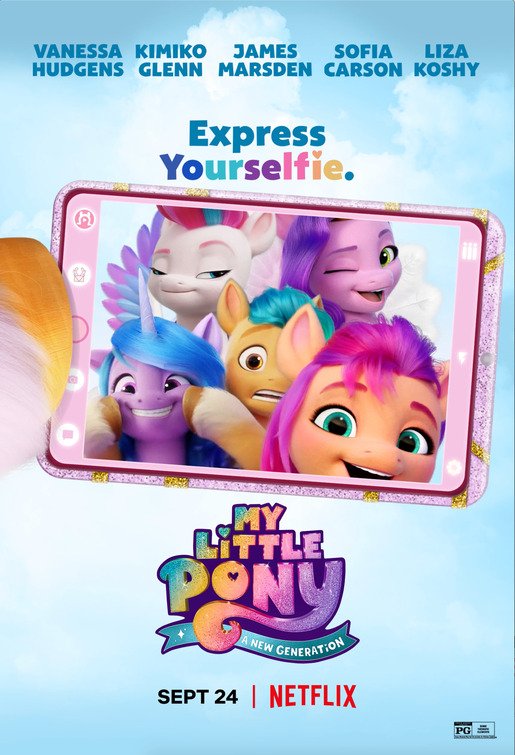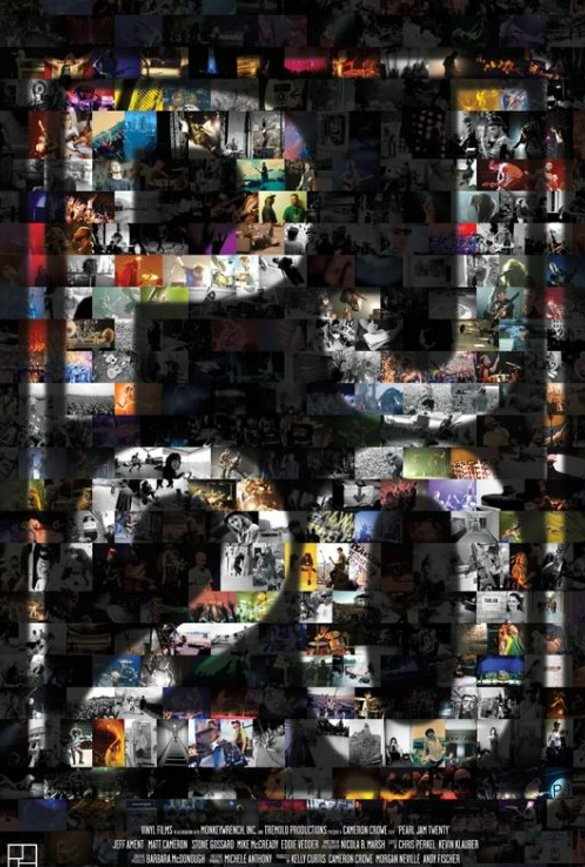“Musical History”

| None | Light | Moderate | Heavy | |
|---|---|---|---|---|
| Language | ||||
| Violence | ||||
| Sex | ||||
| Nudity |
What You Need To Know:
PEARL JAM TWENTY will most appeal to fans of Pearl Jam and fans of rock music. It has some emotional moments where the band members discuss the devastating effects of drug abuse and a crowd stampede in Denmark that killed nine people. The Denmark tragedy caused the band to re-think the venues where it performs. Sadly, the movie has plenty of strong foul language. There are also two concert scenes where the band performs at two pro-abortion events. Thus, PEARL JAM TWENTY will not appeal to media-wise viewers who may be interested in knowing more about this band, its music and background.
Content:
(HH, B, PCPC, LLL, V, N, AA, DD, M) Strong humanist worldview in documentary about the rock group Pearl Jam tempered by numerous examples of the band’s attempt to live by a secular moral code and their extreme loyalty to each other and their fans through two decades of rises and falls with some positive moral elements, such as discussion of the dangers of illegal drug use, offset by brief but distinct depiction of political correctness via footage of their performing in concert for the pro-abortion cause Rock for Choice and lead singer Vedder writing “Pro-choice” on his arm during a performance on “Saturday Night Live,” band shown performing for Tibetan freedom awareness concerts and disaster-relief efforts; at least 31 obscenities and profanities (including variations of the “f” word and one “GD”); violence consists of brief depictions of Pearl Jam crowds getting rowdy and shoving each other dangerously at concerts, but seen in hordes rather than close-ups or in graphic footage, band members get angry onstage at difficult circumstances and briefly knock objects over, and footage of deceased rock singer Kurt Cobain of “Nirvana” (another “grunge rock” band from Seattle) throwing his body into a set of drums and then banging his head repeatedly into a speaker; no sexual content; upper male nudity; alcohol use and drunken behavior by the band onstage in two sequences; smoking and drug addiction is discussed directly with one man talking about having to go to rehab and band members talking about the devastating overdose of a singer friend and how it made them all realize that drugs were a danger rather than a means of fun escape; and, footage of Vedder acting as a daredevil as he hangs from rafters above stages during concerts, recklessly risking his life for the thrill of audiences as he hangs 50 feet above stages and then drops his body into crowds that catch him, Vedder’s attitude toward his safety is nonchalant, Vedder details his unusual childhood, in which he was raised by a man he thought was his father but wasn’t, only learning the truth after his biological father – whom he knew only as a distant family friend – died, and movie shows how this provided him with a deep empathy for others with troubled families and inspired him to write uplifting, albeit secular, lyrics, Vedder looks at a photo of his biological dad, and he notes with wonder that the man was also a rock singer and that he feels the man is “in the ether somewhere, looking out for me.”
More Detail:
In the movie, concert scenes are mixed with studio and other behind-the-scenes footage. Included is some personal footage from former “Rolling Stone” reporter and the movie’s director, Cameron Crowe (JERRY MAGUIRE and ALMOST FAMOUS), who’s been covering the band since the beginning, and interviews discussing the band’s history and impact. Crowe also provides some narration for his movie.
While those who don’t enjoy rock music or Pearl Jam will likely find this movie lacks interest for them, it does depict a rich sense of humanity in showing the rewards and travails experienced by one of modern music’s most globally popular bands. Particularly moving are passages in which the band members and other musicians from their Seattle home town discuss the effects of drug abuse in causing the deaths of band member Kurt Cobain (who committed suicide) of “Nirvana,” another “grunge rock” band from Seattle, and others. Other segments show how the strain of constant media attention, fan demands and frenzied touring inspired them to slow their momentum in an effort to regain normalcy in their lives and remain down-to-earth. The movie also shows the band battling the business practices of Ticketmaster, going all the way to Congressional hearings to demand more competition in the concert-ticket business so that average fans could afford tickets in an era of price gouging. The band is shown willing to help numerous causes, including Tibetan freedom and disaster relief. Among these causes, however, are two pro-abortion events, in one of which the lead singer writes the word “pro-choice” on his arm.
Positives in the movie include a depiction of the devastating effects of drug abuse, as well as the band’s desire to turn away from excessive fame and limelight in order to live more normal, orderly lives and remain down-to-earth. The band members also are shown as extremely loyal to each other and other musicians on the Seattle scene where they have been based throughout their careers. In addition, their lyrics often depict people in crisis learning to stand up for themselves and overcoming abuse, incest, homelessness, and other social and human ills. Also moving is a segment depicting how nine fans were accidentally killed in a crowd stampede at a Danish music festival, a nightmarish situation that drove the band to scale back the size of the venues where they perform, and for which the members still weep a decade later. Finally, their support for affordable ticket prices shows that their connection with their fans, not money, is their priority. The movie notes that the band has suffered, but survived, some big financial and career sacrifices because of that stance.
On the negative side, PEARL JAM TWENTY contains plenty of strong foul language. There are also scenes where the band’s lead singer recklessly risks his life for the thrill of audiences as he hangs 50 feet above stages and then drops his body into crowds that catch him. Finally, the band’s perspective is toward the secular and humanist. The biggest example of this is their self-contradictory support for abortion, which snuffs out the lives of millions of innocent babies in their mother’s womb. As Proverbs 6: 16,17 says, “The LORD hates. . . hands that shed innocent blood.”


 - Content:
- Content: 

